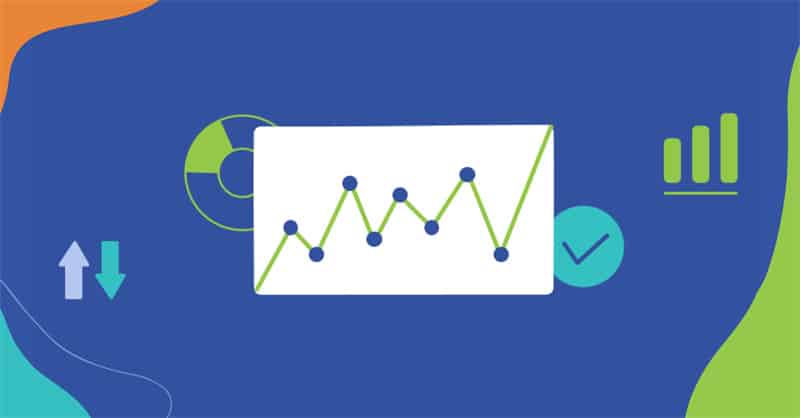
In the ever-evolving landscape of digital marketing, Search Engine Optimization (SEO) remains a cornerstone for driving organic traffic to websites.
As businesses strive to establish their online presence and compete for visibility in search engine results pages (SERPs), understanding and measuring the effectiveness of SEO efforts is paramount.
In 2024, with search algorithms becoming increasingly sophisticated and user behaviors continually evolving, the metrics used to gauge SEO success have also undergone significant refinement.
By delving into these metrics, businesses can gain valuable insights into their SEO performance, identify areas for improvement, and refine their strategies to stay ahead in an ever-competitive digital landscape.
Organic Traffic Metrics

Understanding organic traffic metrics is fundamental to evaluating the overall effectiveness of SEO efforts. Total organic traffic provides a broad overview of how well a website is performing in attracting visitors through unpaid search results.
Analyzing organic traffic by channel (such as desktop, mobile, and tablet) helps in tailoring strategies to optimize user experience across different devices. Dissecting organic traffic by source allows for a deeper understanding of where the traffic is coming from, whether it's search engines, referrals from other websites, or direct visits. .
Keyword Performance Metrics
Keyword performance metrics provide invaluable insights into how well a website is ranking for relevant search queries and how effectively it is attracting organic traffic. Monitoring keyword rankings allows businesses to track their positions in search engine results pages (SERPs) for target keywords and identify trends over time.
Analyzing organic keyword impressions helps in understanding the visibility of the website for specific search terms. Furthermore, click-through rate (CTR) for keywords indicates the effectiveness of meta titles and descriptions in enticing users to click through to the website.
On-Page SEO Metrics
On-page SEO metrics focus on optimizing individual web pages to improve their visibility and relevance to search engines. Page load speed is a critical metric as it directly impacts user experience and search engine rankings. Websites with faster load times tend to have lower bounce rates and higher user engagement.
Mobile-friendliness is another essential metric considering the increasing use of mobile devices for browsing the internet. Search engines prioritize mobile-friendly websites in their rankings to enhance the user experience for mobile users.
Content quality and relevance play a significant role in on-page SEO. High-quality, relevant content not only attracts visitors but also encourages them to engage with the website and return for future visits.
On-page optimization score evaluates how well a webpage is optimized for targeted keywords, meta tags, and other on-page elements.
Off-Page SEO Metrics
Off-page SEO metrics focus on factors that occur outside of the website itself but still impact its search engine rankings. Backlink quantity measures the number of external websites linking to a particular webpage.
The more high-quality backlinks a webpage has, the higher its authority and relevance in the eyes of search engines.
Backlink quality is equally important, considering that search engines prioritize links from authoritative and relevant websites. Metrics such as domain authority and relevancy of linking domains help assess the quality of backlinks.
Referring domains indicate the diversity of websites linking to a webpage, which contributes to its overall authority and credibility.
User Engagement Metrics
User engagement metrics are crucial indicators of how effectively a website is meeting the needs and expectations of its visitors. Bounce rate measures the percentage of visitors who navigate away from the site after viewing only one page. A high bounce rate may indicate that the landing page does not meet user expectations or lacks relevance.
Average session duration measures the average amount of time visitors spend on the website during a single session. A longer average session duration suggests that visitors are engaged with the content and exploring multiple pages.
Conversion Metrics
Conversion metrics are vital for assessing the effectiveness of a website in turning visitors into desired actions, such as making a purchase, signing up for a newsletter, or filling out a contact form.
Goal completions measure the number of times visitors complete a predefined goal, such as making a purchase or completing a form submission. Conversion rate calculates the percentage of visitors who complete a desired action out of the total number of visitors.
Revenue attributed to organic search quantifies the monetary value generated from organic search traffic, providing insights into the ROI of SEO efforts.
Competitive Analysis Metrics

Competitive analysis metrics involve monitoring and comparing key SEO metrics with those of competitors to gain insights and identify opportunities for improvement.
Analyzing competitor keyword rankings provides valuable insights into which keywords competitors are targeting and their performance in SERPs.
Assessing competitor backlink profiles helps identify potential link-building opportunities and gauge the quality and quantity of backlinks necessary to compete effectively.Furthermore, conducting a competitor content analysis allows businesses to understand the type of content that resonates with their target audience and identify content gaps or opportunities for differentiation.
Technical SEO Metrics
Technical SEO metrics focus on the underlying technical aspects of a website that impact its visibility and performance in search engine rankings.
Site indexing status indicates how well search engines have crawled and indexed the website's pages. Monitoring indexing status helps ensure that all relevant pages are discoverable and accessible to search engines.
Site crawl errors highlight any issues encountered by search engine crawlers while navigating the website, such as broken links or inaccessible pages. Resolving crawl errors ensures optimal crawlability and indexing of the website.
XML sitemap status indicates whether the website's XML sitemap is properly formatted and submitted to search engines. A well-structured XML sitemap helps search engines understand the website's structure and prioritize crawling of important pages.
HTTPS security is another important technical SEO metric that measures whether the website is served over a secure HTTPS connection. HTTPS encryption not only enhances user security but also provides a ranking boost in search engine results.
Conclusion
In the rapidly evolving landscape of digital marketing, measuring SEO success is essential for businesses to stay competitive and maximize their online visibility. By focusing on key metrics across various aspects of SEO, businesses can gain valuable insights into the effectiveness of their strategies and make informed decisions to drive sustainable growth.
From organic traffic and keyword performance to user engagement and conversion metrics, each aspect plays a crucial role in evaluating SEO performance and identifying opportunities for improvement. Additionally, conducting competitive analysis and monitoring technical SEO metrics ensures that businesses stay ahead of the curve and maintain their competitive edge in the digital marketplace.
As search algorithms continue to evolve and user behaviors shift, it's essential for businesses to adapt their SEO strategies and continuously monitor and optimize their performance. By embracing data-driven insights and staying abreast of industry trends, businesses can achieve long-term success in driving organic traffic, enhancing user experience, and maximizing their ROI from SEO efforts.





